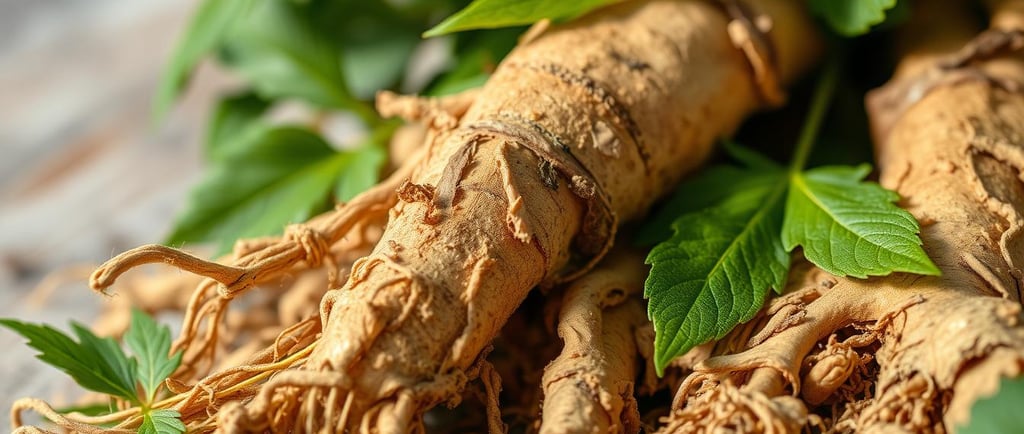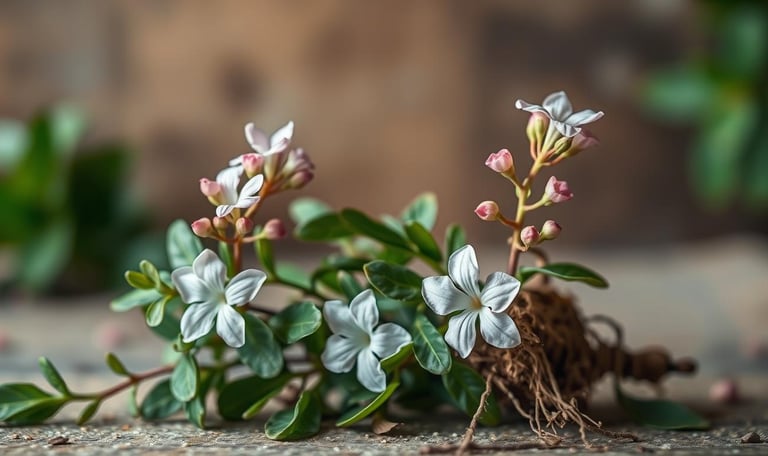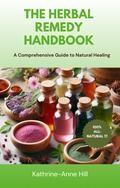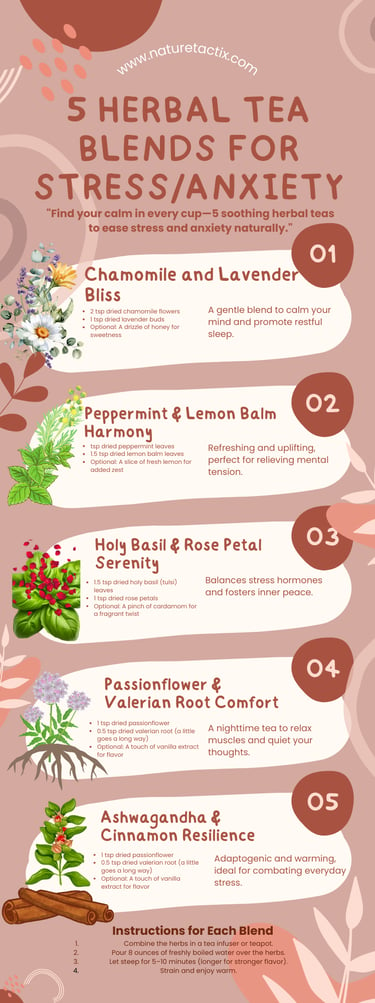Valerian Root: Natural Sleep Aid and Relaxation Support
Discover the natural benefits of Valerian Root for better sleep and relaxation. I'll show you how this ancient herb can help calm your mind and improve sleep quality
HERBALISM
Kathrine-Anne Hill
12/3/20247 min read


Affiliate Disclosure:
Please note that some of the links in this article are affiliate links. This means that if you click on these links and make a purchase, I may receive a small commission at no additional cost to you. This commission helps support the maintenance and growth of this website and allows me to continue providing valuable information and recommendations. Rest assured, I only recommend products and services that I have personally used or thoroughly researched. Your support is greatly appreciated! “As an Amazon Associate I earn from qualifying purchases.” For full disclosure see our Privacy Policy and Terms and Conditions here.
Valerian Root: Natural Sleep Aid and Relaxation Support
Have you thought about using nature to help you sleep better? As a Canadian, I've looked into valerian root. It's an herbal remedy that helps with relaxation and sleep. But does it really work? Let's dive into its history and science.
Key Takeaways
Valerian root has a long history of use as a natural sleep aid and relaxation support
It contains compounds like valerenic acid that interact with GABA receptors in the brain to promote calmness
Research suggests valerian may help reduce the time it takes to fall asleep and improve sleep quality
Valerian is generally considered safe, but it's important to consult a healthcare provider before use
Potential side effects include headaches, dizziness, and stomach issues, and it may interact with certain medications
What is Valerian Root and Its Historical Background
Valerian is a well-known medicinal herb. It has been used for centuries to help with sleep, anxiety, and other health issues. The plant, known as Valeriana officinalis, comes from Europe and Asia.
Ancient Origins and Traditional Uses
The history of valerian root goes back to ancient Greece and Rome. Famous figures like Hippocrates and Galen used it for sleep and other problems. For years, it has helped with nervousness, headaches, and more.
Botanical Characteristics
Valerian is a tall, perennial plant that blooms in summer. It has umbrella-like flowers and dark green leaves. The light grayish-brown root is the main part used for medicine.
Geographic Distribution and Cultivation
Valerian is native to Europe and Asia. Now, it's grown in places like the United States and Canada. Its unique color and smell make it valuable in medicinal herbs and traditional medicine.
How Valerian Root Works in the Body
Valerian root affects the body by changing the levels of gamma-aminobutyric acid (GABA) in the brain. GABA is key for calming the nerves and helping us relax. The root's compounds, like valerenic acid, help GABA work better in the brain.
Valerian root also affects other important chemicals like serotonin and adenosine. These help us sleep and feel good. The root's smell comes from valepotriates, which may help us relax and feel less stressed.
Valerian root's compounds work together to help us relax and sleep better. They also help with anxiety and stress. This is why valerian root is a favorite natural remedy for many people.
Natural Sleep Aid Benefits
If you're having trouble sleeping or want better sleep, valerian root might help. Studies show it can improve sleep in many ways. It's a natural choice for those looking for a sleep aid.
Impact on Sleep Quality
Research says valerian root can make sleep better. A 2020 review of 60 studies found it safe and effective for sleep. In 2021, a study showed it helped people sleep better, even those on hemodialysis.
Falling Asleep Faster
Valerian root can also make falling asleep quicker. A 2021 study found it helped people fall asleep faster and sleep longer. It's good for those who have trouble sleeping or falling asleep.
Sleep Duration Improvement
Valerian root may also make you sleep longer. The same 2021 study found it improved sleep onset and duration. This means you might sleep more with valerian root.
Even though research on valerian root is promising, some studies show mixed results. This means we need more research to know how well it works as a natural sleep aid.
Valerian Root for Anxiety and Stress Relief
Looking for a natural way to handle anxiety and stress? Valerian root might be a good choice. It comes from the Valeriana officinalis plant. People have used it for centuries to help with sleep and anxiety.
Research shows valerian root's compounds can have calming effects on the brain. They might help reduce anxiety. Some studies found that it really works for anxiety symptoms.
One study showed valerian root helped hemodialysis patients feel less anxious. Another study found it helped OCD adults feel less anxious too. Even kids with hyperactivity might find it helpful.
But, valerian root can cause side effects like dizziness and headaches. It might also affect how other medicines work. Always talk to a doctor before trying it.
To get the best results, use valerian root regularly. It should be part of a bigger plan to manage anxiety. This plan should include exercise, healthy eating, mindfulness, and good sleep habits.
Safety and Recommended Dosage
Using valerian root as a natural supplement is safe if you follow the right dosing and safety tips. It's known for helping with sleep and anxiety. With the right use, it can be a great part of your wellness plan.
Proper Dosing Guidelines
For sleep support, take 450 to 1,410 mg of valerian root daily for 4 to 8 weeks. For anxiety, take 400 to 600 mg of extract or 0.3 to 3 grams of whole root up to three times a day.
Timing of Administration
For best results, take valerian 1 to 2 hours before bed. This lets the active parts work and help you sleep well. Remember, it may take 2 to 4 weeks to see full effects, so keep using it regularly.
Duration of Use
Valerian root is safe for most adults for up to 8 weeks. But, talk to a healthcare provider if you're pregnant, breastfeeding, or have health issues. Kids under 3 should not use it without a doctor's advice.
Knowing how to use valerian root safely can help you use it well. It's a great herbal medicine for your supplement safety routine. It supports your valerian dosage and overall health.
Potential Side Effects and Interactions
Valerian root is usually safe for most adults when used right. But, it's good to know about possible side effects and interactions. Some people might get headaches, feel dizzy, have stomach issues, or dream vividly, mainly at high doses.
Valerian root can sometimes cause mild to moderate liver damage. But, most people get better in 2-4 months after stopping it. It can also affect how some medicines work, like sedatives and drugs for seizures. It might make anesthesia stronger, so tell your doctor if you're going to have surgery.
Always talk to a doctor before using valerian root, if you're on other meds or have health issues. Also, don't drive or use big machines after taking valerian because it can act as a natural sedative. Knowing these things helps you decide if valerian root is good for you.
For further reading on herbal remedies my book "The Herbal Remedy Handbook: A Comprehensive Guide to Natural Healing" is available here or from the eBooks page.
"The Herbal Remedy Handbook" is your ultimate resource for embracing the natural world of herbs, providing you with the knowledge and tools to enhance your health and well-being through nature's most potent remedies. Whether you are new to herbalism or looking to deepen your understanding, this book offers a complete guide to the healing power of herbs.
For people who like a convenient supplement instead of making teas or tonics, Nutra Champs Sleep Gummies are vegan, plant-based and allergen free. They include valerian root as well as passionflower, chamomile, lemon balm, L-theanine, lavender and melatonin, and have a natural berry flavor.
Related Posts:
The Role of Herbal Wisdom in Wilderness
Product Review of Moringa Magic and it's Health Benefits
Natural Herbal Remedies for Pain Relief: A Gentle Approach
For a Free PDF of 5 Herbal Tea Blends for Stress and Anxiety
Click the Link Below!
FAQ
What is valerian root and how has it been used historically?
Valerian root comes from a plant found in Asia and Europe. It's grown all over the world. People have used it for sleep and anxiety for centuries.
It has special compounds that help the brain relax and sleep better.
What are the botanical characteristics of valerian root?
Valerian root can grow up to 2 feet tall. It has umbrella-like flowers and dark green leaves. The root is light grayish-brown and smells very strong.
How does valerian root work in the body?
Valerian root may work by increasing GABA in the brain. GABA helps calm the nerves. It also affects serotonin and adenosine, which help with sleep and mood.
What are the sleep-related benefits of valerian root?
Valerian root can help you fall asleep faster. It also makes your sleep better and longer. A 2020 review found it safe and effective for sleep.
Can valerian root help with anxiety and stress relief?
Yes, valerian root may reduce anxiety and stress. A 2021 study showed it helped hemodialysis patients. It might also help with obsessive-compulsive disorder (OCD).
What is the recommended dosage and timing for using valerian root?
For sleep, take 450-1,410 mg of valerian root daily for 4-8 weeks. For anxiety, 400-600 mg of extract or 0.3-3 grams of root up to 3 times a day is recommended. Take it 1-2 hours before bed for insomnia.
Are there any potentially side effects or interactions with valerian root?
Valerian root is usually safe but can cause mild side effects like headaches or vivid dreams. Rare cases of liver injury have been reported, mostly with other herbs. It may interact with certain drugs and increase anesthesia effects.













